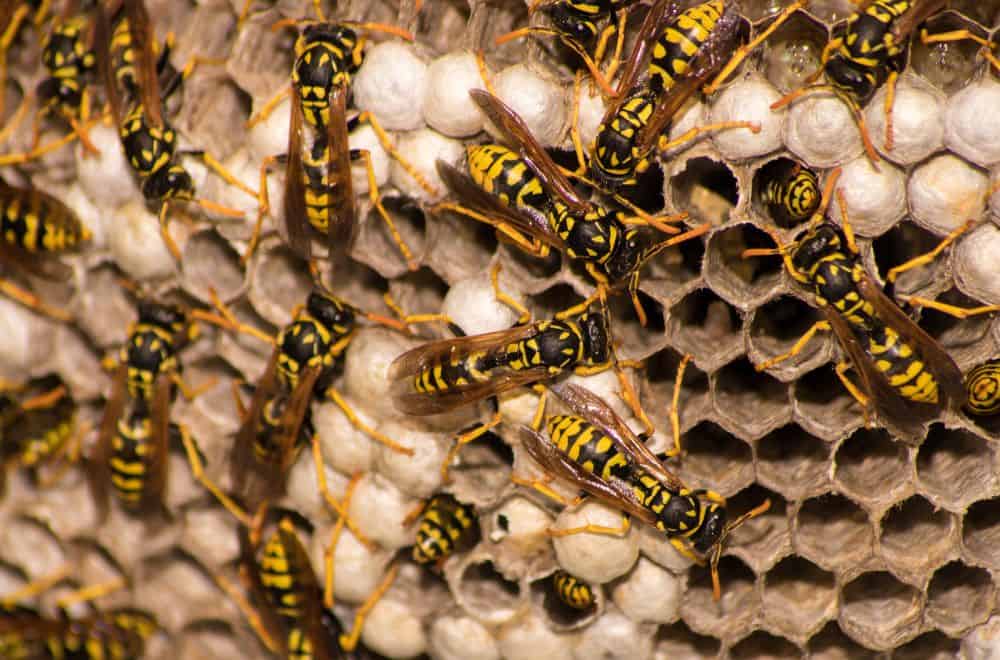Warmer weather typically brings wasps to your home and garden. Since these insects are potentially dangerous and their sting may cause allergies, finding a way to deter them is crucial. On the other hand, never kill these beneficial pollinators.
Your goal should be to find a way to discover what smells do wasps hate and use the one you like to get rid of them successfully. Your options are vast, including fragrant plants in your yard or essential oils sprayed around the house.
Smells wasps hate |
| Lemongrass, geranium, and clove essential oil mix |
| Peppermint essential oil |
| Citronella essential oil |
| Cinnamon essential oil |
| Lavender essential oil |
| Basil essential oil |
| Eucalyptus essential oil |
| Spearmint essential oil |
| Cedarwood essential oil |
| Geranium |
| Chamomile |
| Wintergreen |
| Lemongrass |
| Clove |
| Eucalyptus tree |
| Thyme |
| Basil |
| Rosemary |
| Lavender |
| Mint |
| Spearmint |
| Citronella |
| Lemongrass |
| Pennyroyal |
| Marigold |
| Lemon balm |
| Wormwood |
| Citrus fruit |
| White vinegar |
| Cucumber |
| Dried bay leaves |
| Chili pepper water solution |
| Garlic |
| Tomatoes |
| WD-40 all-purpose lubricant |
Reasons to Repel Wasps
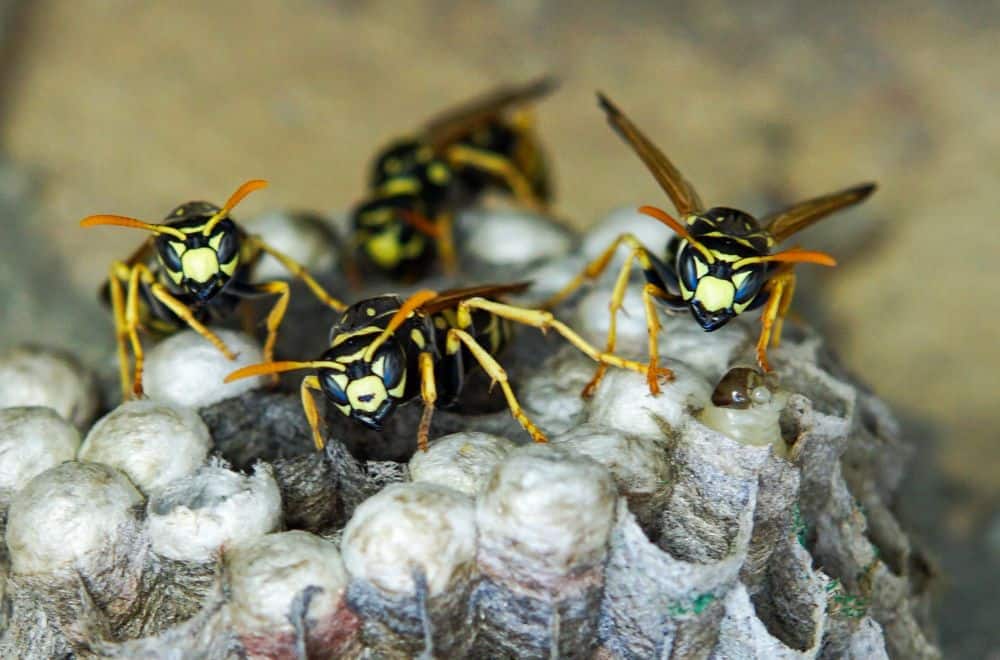
More than 30,000 wasp species live worldwide, including solitary and social types. Solitary wasps never form colonies, while social ones have a queen and a nest, gathering over 5,000 members. The most common types are:
- Paper wasp
- Yellowjacket
- Bald-Faced hornet
- European hornet
- Mud dauber
The best option to eliminate wasps from your yard is to destroy their nest. However, this forcible action can be hazardous because the stings of these insects can cause severe allergic reactions.
Therefore, you can try to get rid of these insects in a more pleasurable and safer way by using fragrance. Planting beautiful flowers in your backyard and spraying the house with essential oils can help your intentions.
What Smells Do Wasps Hate?
Most insects hate scents people like. It is the same with wasps, so you can find one of the pleasurable ways to get rid of them instead of applying chemicals. Let’s see.
Essential oils
Most essential oils extracted from fragrant plants are excellent repellents against insects. Their additional benefits include their relaxing properties and ability to make your home scented and fresh.
You can use a few essential oils to deter wasps, thanks to their bioactive compounds emitting the aromatic smell these insects hate. The most effective are:
1. Lemongrass, geranium, and clove essential oil mix
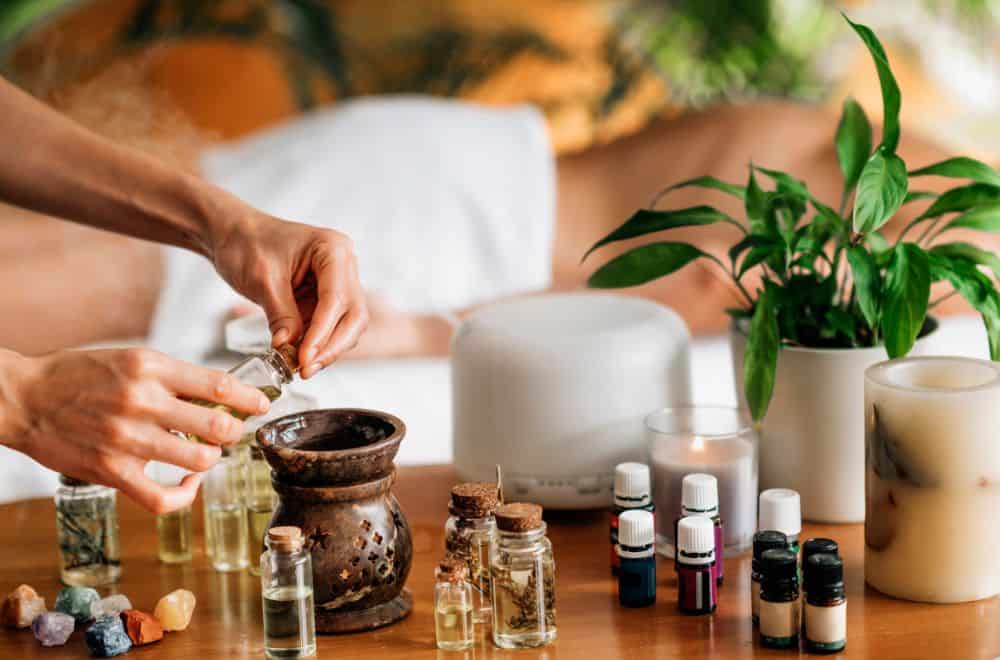
One of the most efficient ways to get rid of wasps is to combine lemongrass, geranium, and clove essential oils. Mix a few drops of each oil with a small amount of dish soap. Then, add a cup or two of water to dilute a mixture, pour it into a spray bottle, and spritz surfaces where you often see wasps.
Besides applying this fragrant solution inside your home, spraying it near a wasp nest, under porch roofs and eaves, and in hidden places can be beneficial. Since these insects often build nests in the exact locations every year, the best thing to do is to find old ones and soak the entire place with this essential oil blend.
2. Peppermint essential oil
Wasps hate the potent scent of peppermint essential oil, so you can use it to repel these insects from your living area. Besides, you can spray its water solution over plants, but be aware that wasps may return as soon as the smell disappears.
Therefore, applying this oil through a diffuser or placing cotton balls soaked with the oil is a more efficient and longer-lasting solution. Besides keeping wasps away, you will also deter dangerous hornets and make your home fragrant.
3. Citronella essential oil
This oil is highly unattractive to wasps, thanks to the intensive citrus smell. Therefore, you can soak cotton balls and arrange them throughout the house to let concentrated oil act as a repellent.
4. Other essential oils

Besides these super-efficient essential oils you can use as wasp repellents, a few more are excellent options for the same purpose.
- Cinnamon essential oil
- Lavender essential oil
- Basil essential oil
- Eucalyptus essential oil
- Spearmint essential oil
- Cedarwood essential oil
Anti-wasp ornamental plants
You can also plant a few flowers in your backyard to keep wasps away from your home.
5. Geranium
Unlike most ornamental plants that attract wasps, red-colored geranium deters them from your yard when planted next to your front door and under windows. Another option is to light a scented candle, spreading the smell to have a home without stinging insects.
This flower’s power over wasps lies in one of its compounds, geraniol. This natural fragrant terpene has a potent sweet rose scent that wasps hate. You can also crash flower petals and arrange them on windowsills for a better result.
6. Chamomile and wintergreen
There is no scientific confirmation that chamomile flowers and wintergreen plants can deter wasps, but they are considered traditional repellents. You can plant them in your backyard and enjoy their beauty and pleasant scent. If they can help you get rid of wasps, the better.
7. Lemongrass and clove
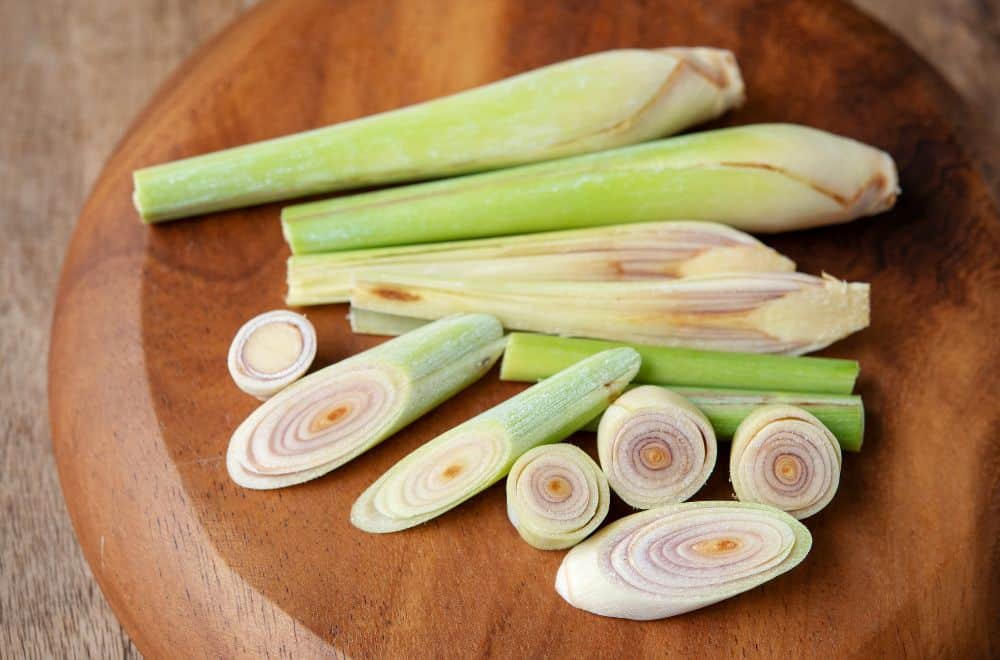
Boil water in a pot, and then add lemongrass and cloves. Move it from the stove and let the mixture sit for about half an hour. Strain the solution, pour it into a spray bottle, and apply it whenever needed.
8. Marigold
These lovely flowers produce a scent that repels numerous insects, including wasps. Besides, planting them is an excellent option to free your garden of nematodes.
9. Mint
This fragrant herb annoys wasps and hornets, so you can plant it indoors in a pot or all over the yard. That is an excellent natural way to eliminate these potentially hazardous insects.
10. Other plants
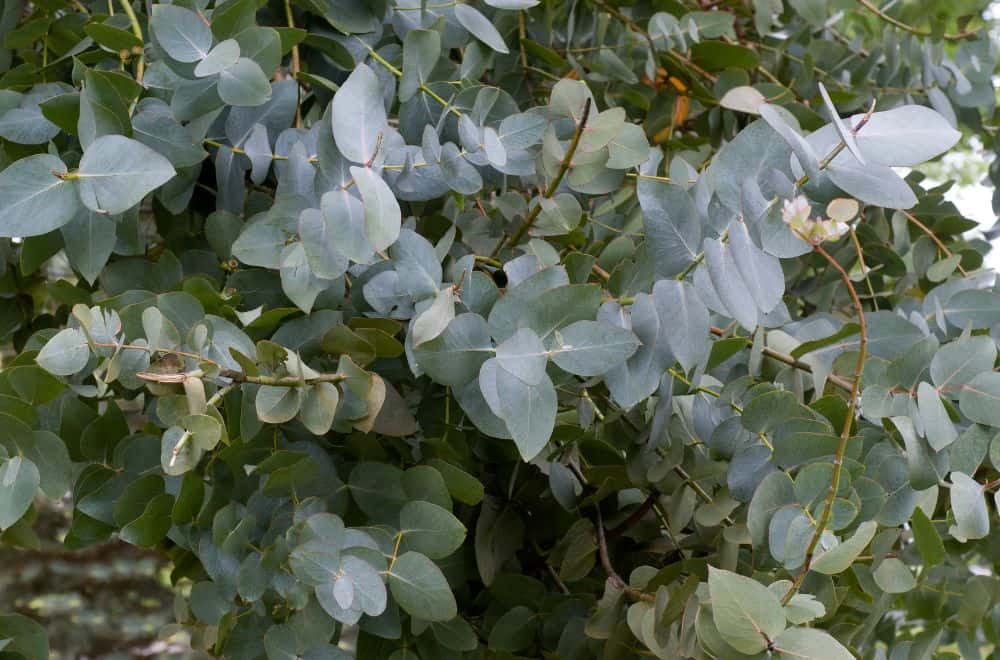
It is believed that wasps hate plants with red flowers or foliage, so you can plant one or a few in your yard to keep these insects away. You can also experiment with the following:
- Eucalyptus tree
- Thyme and basil
- Rosemary and lavender
- Mint and spearmint
- Citronella and lemongrass
- Pennyroyal and marigold
- Lemon balm
- Wormwood
Besides planting these flowers and herbs outside, you can grow them in pots placed in your kitchen. Be careful with wormwood, and never put it near other plants.
On the other hand, avoid growing wasp-attracting plants to prevent possible problems. For instance, never choose sweet fennel, Queen Anne’s lace, and yarrow when you have an issue with these insects.
Citrus fruit
Lemon, lime, grapefruit, and orange can help deter wasps from your home. The easiest option is to save peels after making a juice and arrange them on the countertop and along windowsills.
11. Vinegar
White vinegar is a versatile liquid with a strong sour scent, highly irritating to wasps. Spraying its water solution in your kitchen covers up scents attracting wasps and helps to deter them.
On the other hand, a mix of 4% acetic acid or apple cider vinegar with sugar and water becomes attractive to these insects, so you can use it to make a wasp trap. If you want to kill them, the most efficient way is to place a bowl with this mixture near their nest.
12. Cucumber

Cucumber is a delicious fruit and an excellent repellent against wasps, thanks to its acidic smell. You can act in two ways when your plan is to use cucumbers to deter these stinging insects. One of the options is to plant them near your home.
However, the most effective solution is to arrange cucumber slices and peels at places where wasps gather the most. They contain bitter-tasted cucurbitacin, responsible for this fruit taste and with some toxic properties.
Interestingly, placing cucumber slices in an aluminum pan may increase their distinct smell and repellent properties. A negative side of this solution is that rot peel and fruit pieces attract bees and flies.
13. Dried bay leaves
You can grind dried bay leaves and use their strong scent to deter wasps. The crucial thing is to crash leaves to release eugenol, an aromatic oily liquid with a smell unbearable and highly irritating for wasps.
Put a handful of crushed leaves in a bowl and leave them on the kitchen countertop or scatter them in the yard. You can get an even stronger effect when mixing it with other spices, like chili powder or cinnamon.
14. Tomato
Planting a few tomato stalks between rose bushes can save you from wasp invasion. Besides them, this plant also deters mosquitoes since these insects hate the smell. Interestingly, even a bowl of rich tomato sauce aroma seasoned with basil can keep your kitchen free of them.
15. Garlic
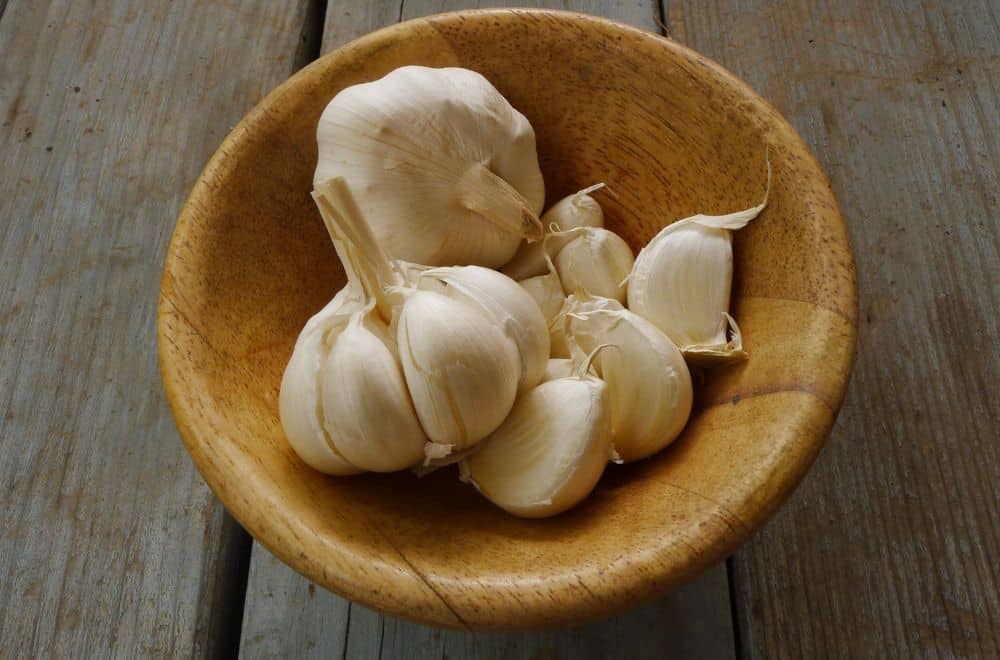
Chop garlic cloves and place them on your patio or kitchen countertop. Since wasps don’t like their smell, you can expect them to avoid your property.
16. Chili pepper water solution
Chop chili peppers, mix two cups with the same amount of water, and boil it for 2 to 3 minutes. Let it cool, pour the mixture into a spray bottle, and spritz it onto flat surfaces in your kitchen or outdoors.
17. WD-40 all-purpose lubricant
WD-40 is a pretty stinky product that repels wasps. Spray it around the wasp nest, and insects will fly away. Even though it is a chemical, it won’t kill insects except in the case of direct contact. Be careful because it leaves ugly stains on wooden surfaces.
Summary
Wasps have their purpose as pollinators, so using strong chemicals to kill them is not recommended. There is no need for such a drastic action. It is enough to grow particular plants in your yard and apply essential oils inside your home to repel these insects successfully. Besides keeping them away, you will save the environment and make your home fragrant.
